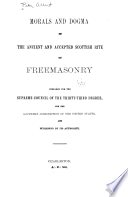
Source: Morals and Dogma of the Ancient and Accepted Scottish Rite of Freemasonry (1871), Ch. II : The Fellow-Craft, p. 43
Context: Remember, that though life is short, Thought and the influences of what we do or say, are immortal; and that no calculus has yet pretended to ascertain the law of proportion between cause and effect. The hammer of an English blacksmith, smiting down an insolent official, led to a rebellion which came near being a revolution. The word well spoken, the deed fitly done, even by the feeblest or humblest, cannot help but have their effect. More or less, the effect is inevitable and eternal. The echoes of the greatest deeds may die away like the echoes of a cry among the cliffs, and what has been done seem to the human judgment to have been without result. The unconsidered act of the poorest of men may fire the train that leads to the subterranean mine, and an empire be rent by the explosion.
